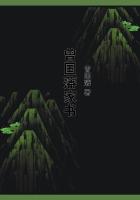Herr Dühring on the contrary declares that every sum of means of production which "forms shares in the fruits of the general labour-power" {D. C. 40}, that is, yields surplus-labour in any form, is capital. In other words, Herr Dühring annexes the surplus-labour discovered by Marx, in order to use it to kill the surplus-value, likewise discovered by Marx, which for the moment 3 does not suit his purpose. According to Herr Dühring, therefore, not only the movable and immovable wealth of the Corinthian and Athenian citizens, built on a slave economy, but also the wealth of the large Roman landowners of the time of the empire, and equally the wealth of the feudal barons of the Middle Ages, in so far as it in any way served production -- all this without distinction is capital.
So that Herr Dühring himself does not hold "the accepted view of capital, namely, that it is a means of production already produced"{D. K. G. 497}, but rather one that is the very opposite of it, a view which includes in capital even means of production which have not been produced, the earth and its natural resources. The idea, however, that capital is simply "produced means of production" is once again the accepted view only in vulgar political economy. Outside of this vulgar economics, which Herr Dühring holds so dear, the "produced means of production"or any sum of values whatever, becomes capital only by yielding profit or interest, i.e., by appropriating the surplus-product of unpaid labour in the form of surplus-value, and, moreover, by appropriating it in these two definite subforms of surplus-value. It is of absolutely no importance that the whole of bourgeois economy is still labouring under the idea that the property of yielding profit or interest is inherent in every sum of values which is utilised under normal conditions in production or exchange.
In classical political economy, capital and profit, or capital and interest, are just as inseparable, stand in the same reciprocal relations to each other, as cause and effect, father and son, yesterday and today. The word "capital" in its modern economic meaning is first met with, however, at the time when the thing itself makes its appearance, when movable wealth acquires, to a greater and greater extent, the function of capital, by exploiting the surplus-labour of free labourers for the production of commodities;and in fact it was introduced by the first nation of capitalists in history, the Italians of the fifteenth and sixteenth centuries. And if Marx was the first to make a fundamental analysis of the mode of appropriation characteristic of modern capital; if he brought the concept of capital into harmony with the historical facts from which, in the last analysis, it had been abstracted, and to which it owed its existence; if by so doing Marx cleared this economic concept of those obscure and vacillating ideas which still clung to it even in classical bourgeois political economy and among the former socialists -- then it was Marx who applied that "definitive and most strictly scientific treatment" {498} about which Herr Dühring is so constantly talking and which we so painfully miss in his works.
In actual fact, Herr Dühring's treatment is quite different from this. He is not content with first inveighing against the presentation of capital as a historical phase by calling it a "bastard of historical and logical fantasy" {498} and then himself presenting it as a historical phase. He also roundly declares that all means of economic power, all means of production which appropriate "shares in the fruits of the general labour-power" {D. C. 40} -- and therefore also landed property in all class societies -- are capital; which however does not in the least prevent him, in the further course of his exposition, from separating landed property and land rent, quite in the traditional manner, from capital and profit, and designating as capital only those means of production which yield profit or interest, as he does at considerable length on page 156and the following pages of his Cursus . With equal justice Herr Dühring might first include under the name 'locomotive" also horses, oxen, asses and dogs, on the ground that these, too, can be used as means of transport, and reproach modern engineers with limiting the name locomotive to the modern steam-engine and thereby setting it up as a historical phase, using barren conceptions, bastards of historical and logical fantasy and so forth;and then finally declare that horses, asses, oxen and dogs are nevertheless excluded from the term locomotive, and that this term is applicable only to the steam-engine. -- And so once more we are compelled to say that it is precisely the Dühringian conception of capital in which all keenness of economic analysis is lost and the faculty of discernment perishes, together with all honesty in the use of concepts; and that the barren conceptions, the confusion, the frivolities palmed off as profound logical truths and the fragility of the foundations are to be found in full bloom precisely in Herr Dühring's work.
But all that is of no consequence. For Herr Dühring's is the glory nevertheless of having discovered the axis on which all economics, all politics and jurisprudence, in a word, all history, has hitherto revolved.
Here it is:
"Force and labour are the two principal factors which come into play in forming social connections" {D. C. 255}.
In this one sentence we have the complete constitution of the economic world up to the present day. It is extremely short, and runs:
Article One: Labour produces.
Article Two: Force distributes.
And this, "speaking in plain human language" {D. K. G. 496}, sums up the whole of Herr Dühring's economic wisdom.
VIII.
CAPITAL AND SURPLUS-VALUE















